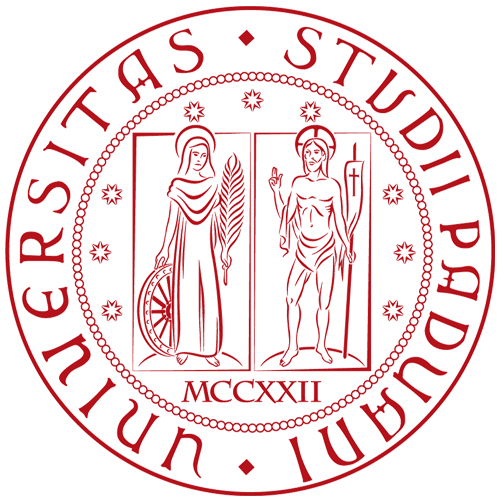vocabulary_xml
PHRC semantic annotation: A thematic overview
(WHO) ENTITY TYPES
applies to an individual holding a functional title, which explains his specific charge or social status (e.g. strategos, king, gymnasiarch)
applies to a recognizable social group, which is not identifiable as a governmental body (e.g. citizens, foreigners, members of an association)
applies to an institutional entity acting as a governmental body (e.g. polis, demos, boule, phyle, association with a deliberative assembly)
(WHO) CIVIC AGENTS
applies to the level of federal coordination between cities, usually at a regional level
applies to institutions and groups representing the whole civic body of a polis
applies to subsections of the population of citizens (e.g. tribes, members of gymnasium, etc.)
applies to settlements that do not enjoy polis status but take decisions through institutional bodies
applies to temporary, non-citizen residents of a community
(WHO) KINGDOM AGENTS
applies to any member of the royal family
applies to court members and any official and collaborator whose function depends on royal authority
applies to local officials administering an estate for the person who has received it from a king
(WHO) PROFESSIONAL AGENTS
applies to individuals or groups acting as members of an army
applies to agents involved in the production and trade of goods
applies to agents performing specific ritual functions, usually as ritual experts in relation to a specific deity or occasion
(WHO) PERSONAL DATA
provides information about age classes (people) and age requirements (sacrificial animals)
provides information about social classes, based on census
provides information about the type of family relationship between two or more people
provides information about the geographical origins of the social entities
provides information about the mather of a named person, usually belonging to the royal house
provides information about the father of a named person
(WHO) ROLE IN RELIGIOUS ACTIVITY
refers to persons and groups actively performing a ritual
refers to divine or human figures to whom the ritual is addressed
refers to persons and groups benefiting from an act of ritual intercession by the gods, performed by ritual agents (usually expressed with hyper + the genitive)
(WHO) DIVINE
refers to any divine figure, mentioned singularly or collectively, either with a specific name or generically as "the god(s)"
refers to figures belonging to the supra-human sphere, for whom heroic status is made linguistically explicitely in a text
refers to cult denonimations of gods as well as to epithets attributed to humans (mostly sovereigns) in cultic contexts
(WHAT) RITUAL ACTIVITIES
specifies the type of animal(s) offered during a ritual
refers to an agonistic competition of athletic and/or artistic nature, usually a part of a larger religious event
refers to the ritual act by which an agent (nominative) ascribes the property of a durable object, structure, or building (accusative) to a divine recipient (dative), possibly with a third party benefiting from the ritual action (hyper + the genitive)
refers to a religious event, usually comprising a variety of activities (e.g. procession, sacrifice, meal, contest), by referring to it either with a generic term (e.g. panegyris) or with a proper name (e.g. Panathenaia)
refers to the ritual offering of aparchai in its various forms (agricultural products, hair, money)
refers to the ritual activities accompanying the burial of a deceased person
refers to the decision and result of making a day sacred, often implying the temporary interruption of customary activities of the communities
refers to the various social and ritual acts related to wedding
refers to a sacred banquet, usually part of a bigger religious event and taking place after a sacrifice
refers to the act of invoking a divine power to grant super-human authority to a human decision
refers to the ritual act by which an agent (nominative) offers a perishable good (accusative; e.g. a sacrificial animal, vegetables, frankincense, wine or another liquid) to a divine recipient (dative), possibly with a third party benefiting from the ritual action (hyper + the genitive). For the different types of syntax, see below, 'Relations'
refers to any sign manifesting divine will to a person or community (e.g. oracle, dream)
refers to the act of invoking a divine power to ensure protection, health, safety, success to the agent and/or to other persons or groups, in favour of whom the ritual takes place
refers to the performance of a group of people parading in a formally organized and ritualized manner, usually as part of a larger religious event
refers to the interdiction of a certain practice (e.g. food, sexual intercourse, clothes), on a certain time and place, for religious reasons
refers to the act of purifying a person, an object, or a place, by removing some sort of contamination, which may have various motivations
refers to an artistic performance (singing, dancing) as part of a larger religious event
refers to the right, grated to the members of a community, to wear garlands (usually reserved for priests or other prominent ritual agents) while taking part in the events of a festival, or a part of it
(WHAT) NON-RITUAL ACTIVITIES
applies to any process of selection of personnel and of attribution of an official charge
applies to the any act by which an agent promises future benefits to another, usually wishing to win his goodwill and gratitude
applies to any act implying a formal exchange of information between agents (e.g. petition, letter, embassy)
applies to the process of carrying out an activity in compliance with an established procedure (e.g. setting up or adorning a statue, erecting a building, performing a procession)
applies to the act of providing financial resources for the realization of a project (often a function carried out by benefactors); different from management, which implies the allocation of a sum already available
applies to a formalized meeting between agents (e.g. sessions of a deliberative body, official meetings between kings and city ambassarods)
applies to the act of honouring an individual person or group as well as to the gifts/privileges involved
applies to the act of supervising an activity, including the administrative control over funds allocated for a project
applies to the acts and occasions by which a person or group memorializes a date or an event
applies to a passage in a text where another written text or a reported speech is cited literally
refers to the act of producing a written document/monument (e.g. inscribing a stele, a statue base)
refers to victory on the battlefield or in a competition
(WHEN) TIME INDICATIONS
refers to an ancient date, based on a specific calendar (day, month, year, local or royal epoch)
refers to a time indication other than a date
may speficy a time indication by referring to a punctual moment or occasion on which an event takes place
may speficy a time indication by referring to the time span during which a certain situation or activity occurs
may speficy a time indication by referring to the time interval between various repetitions of a cyclical event
(WHERE) SPACE INDICATIONS: SEE THE DETAILED LIST IN THE SPACE.XML INDEX
(WHY) MOTIVATIONS
refers to an agent's activities or intentions that can be praised by other agents, and which can be paid back with the grant of honours and privileges
refers to the positive attitude of an agent or group having benefited from the acts of another agent; it can result into the grant of honours for the benefactors, including the celebration of specific thanksgiving rituals (e.g. charisteria offerings)
(HOW) RELATIONS
establishes a correspondence, within a certain context, between an item and another, which acts as a model (e.g. performing a sacrifice to a monarch "as" to Apollo, receiving honours "equal to the gods")
refers to the introduction of a new object, denomination, structure or performance in an existing setting, in a way that completes its previous elements without replacing them (e.g. addition of a new epiclesis to a monarch, establishment of new festivals appended to existing ones, introduction of new cult statues sharing the temple with traditional gods)
refers to the recipients of offerings, dedications, or other forms of ritual action directly addressed to deities and/or to human holders of power.
refers to the divine and/or human recipients of a dedication, highlighting their status as the owners of the dedicated object or structure.
refers to the person on whose behalf/advantage an offering or a dedication is made to a deity.
refers to the introduction of a new object, denomination, structure or performance in an existing setting, in a way that replaces and erases its previous elements (e.g. change of recipient of a festival or other ritual ceremony, change of name of a month or building)
refers to a structure, place, or time period, named after a person (e.g. month Seleukeios -> King Seleukos)
refers to a relationship between two items in terms of aesthetic or moral adequacy (e.g. a cult statue worthy of the god, honours adequate to the merits of the honorand)
refers to a spatial relationship between two items (e.g. a stele erected in the sanctuary of Athena, an altar positioned close to the status of a god)
refers to a part of an animal in regulations concerning offerings and the sharing of the sacrificial meat
FURTHER COMPLEMENTS: QUALIFYING AND QUANTIFYING
specifies the gender of a person or animal
specifies the qualities of an object with regard to the material
refers to currency as part of transactions or as a way to quantify the value of an object
refers to a quantification in numbers, other than in money
specifies the qualities of an individual, an offering, or an object from an aesthetic, moral or ritual perspective (e.g. a "pure" ritual agent, a "perfect" victim, a statue "as beautiful as possible")




